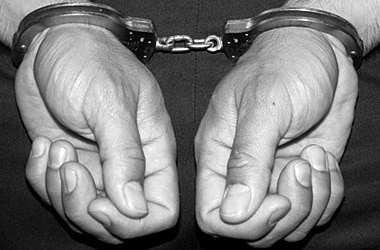Thomas Jefferson said that an informed citizenry is critical to a democracy, and with that as a cornerstone the Founders wrote freedom of the press into the First Amendment to the Constitution.
The most basic of ideas at play is that the government should in no way be allowed to control what information the press can report to the people, and cannot place restrictions on journalists. One of the principal characteristics of any fascist state is the control of information, and thus the press is always seen as a check on government power that needs to be stomped on. Ask any surviving journalist in North Korea, or Saudi Arabia.
And so it is with terror we learn the United States Secret Service, in the name of security, is for the first time in our Republic’s history running background checks on thousands of journalists who plan to report from this summer’s Republican and Democratic Party nominating conventions.
Journalists who don’t pass the security screening process, for which of course there are no publicly-stated criteria and which has no system of appeal, will be denied credentials to cover the GOP convention in Cleveland, and the Democrats’ in Philadelphia. As the Daily Beast writes, this is the government deciding who can and can’t be a journalist, and through that process, heavily influencing what will be reported. Happytime government stenographers from CNN? Step right in, sir. Investigative, real journalists from The Intercept? Um, maybe not. Will a journalist from an “un-American” news source such as The Daily Worker be denied simply based on affiliation?
Oh, the issues are many.
For example, security clearances are typically denied to persons with an arrest record. Will that also apply to journalists who have been arrested in protest situations while exercising one or more of their First Amendment rights? Drug use is also often a negative indicator for a security clearance, so does that mean a person busted for a loose joint in college may not report from inside the convention hall?
The Secret Service denies that a protest arrest will lead to a denial, though admits that arrests for assault, or domestic violence, charges could. At issue is that such arrests can cover a very broad spectrum of behavior, determined at a very local level. For example, imagine an African-American falsely charged with assault in some mean Texas backwater. Note also, as in most security clearance processes, the standard is an arrest, not necessarily a conviction.
Obtaining security clearances also involves the “voluntary” turning over of personal information to the government, to often include associations, employment history, professional affiliations, fingerprints, financials and the like. If a journalist wishes not to hand over that information to the Secret Service, does that automatically bar him/her from playing his mandated role of informing the public? Apparently it does.
There is also the question of control of all that personal information. The Secret Services states on its website that it has a contract with the Ardian Group, a private contractor, “to capture that Personally Identifiable Information for credentialing production” (though the Service itself makes the actual yes or no decision to allow access.)
In a widely distributed “Dear Colleagues” letter, John Stanton, Washington bureau chief of BuzzFeed, asked the capper question: “Should the Secret Service have jurisdiction over the First Amendment?”
Reprinted with permission from WeMeantWell.com.


